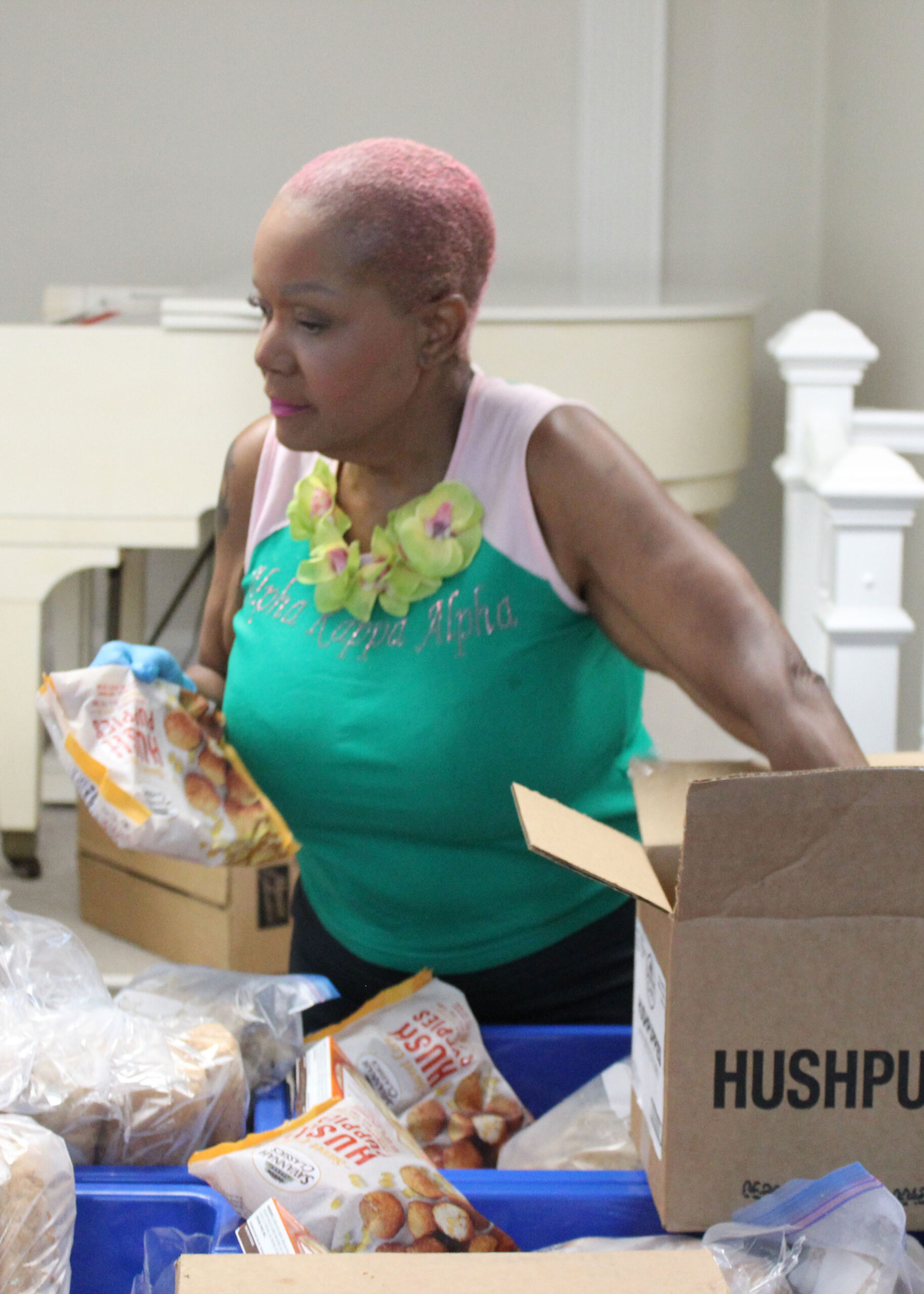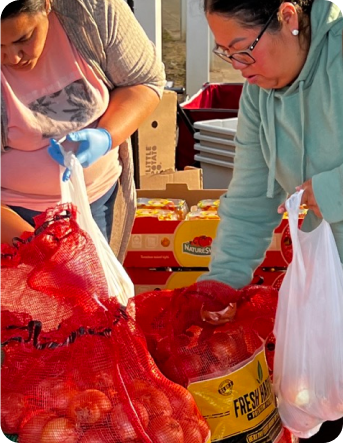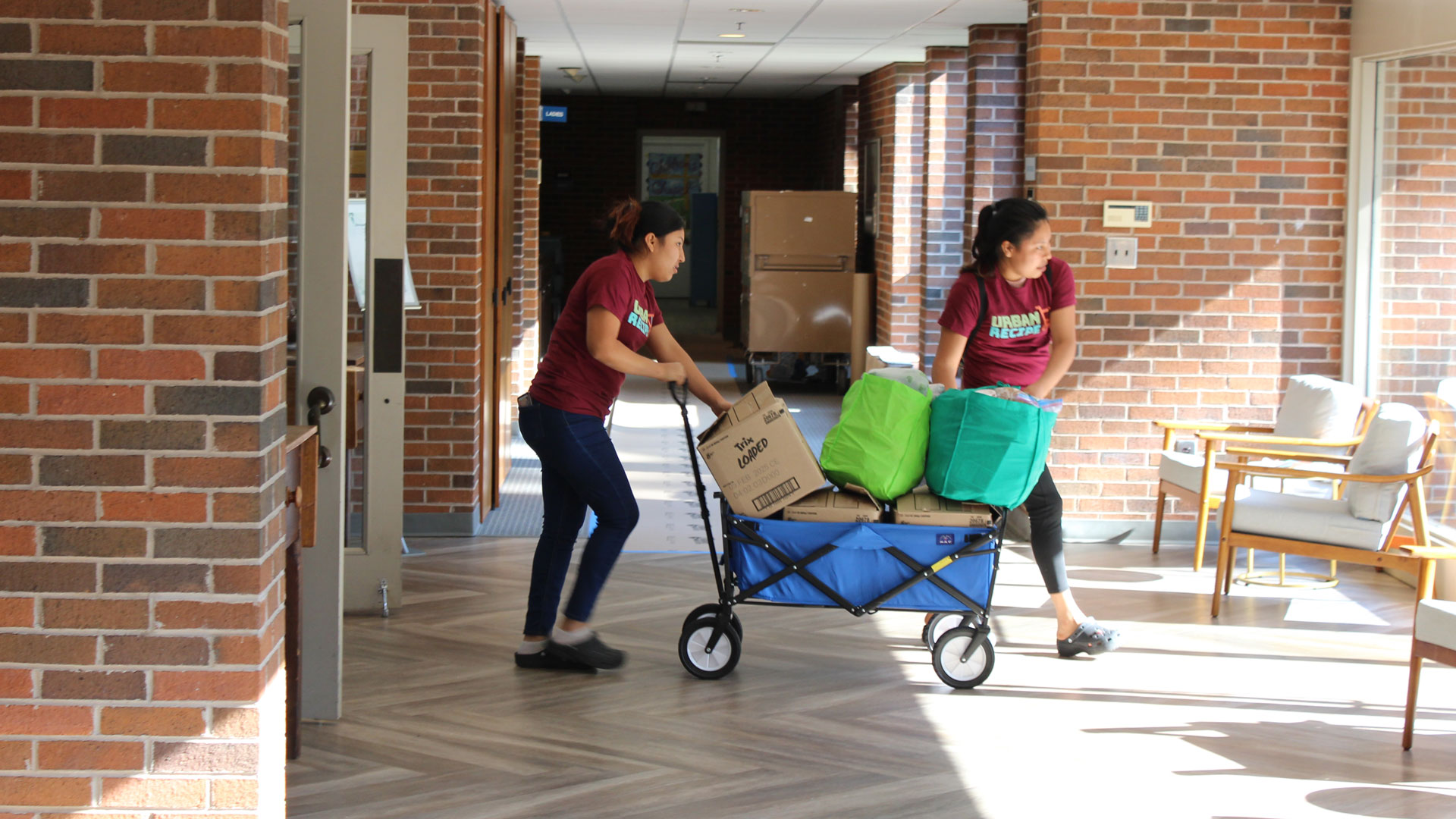
urban recipe
food Co-ops are Changing Communities
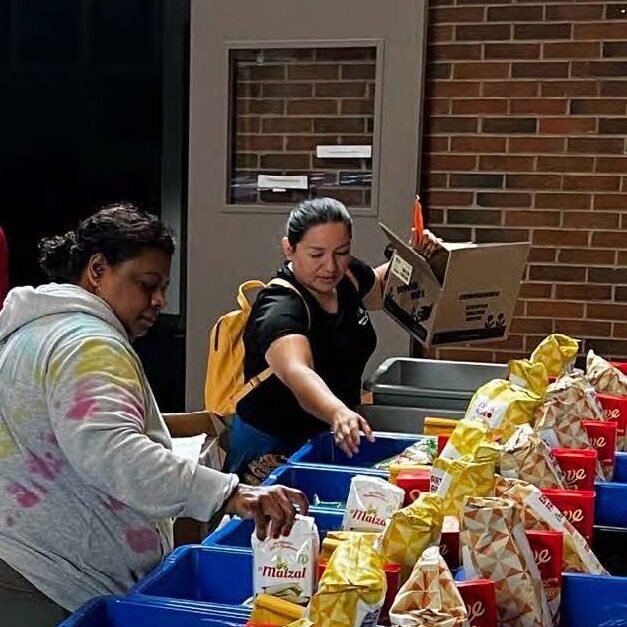
1,100+
People
10 co-ops served 1,100+ family members every
2 weeks in Atlanta
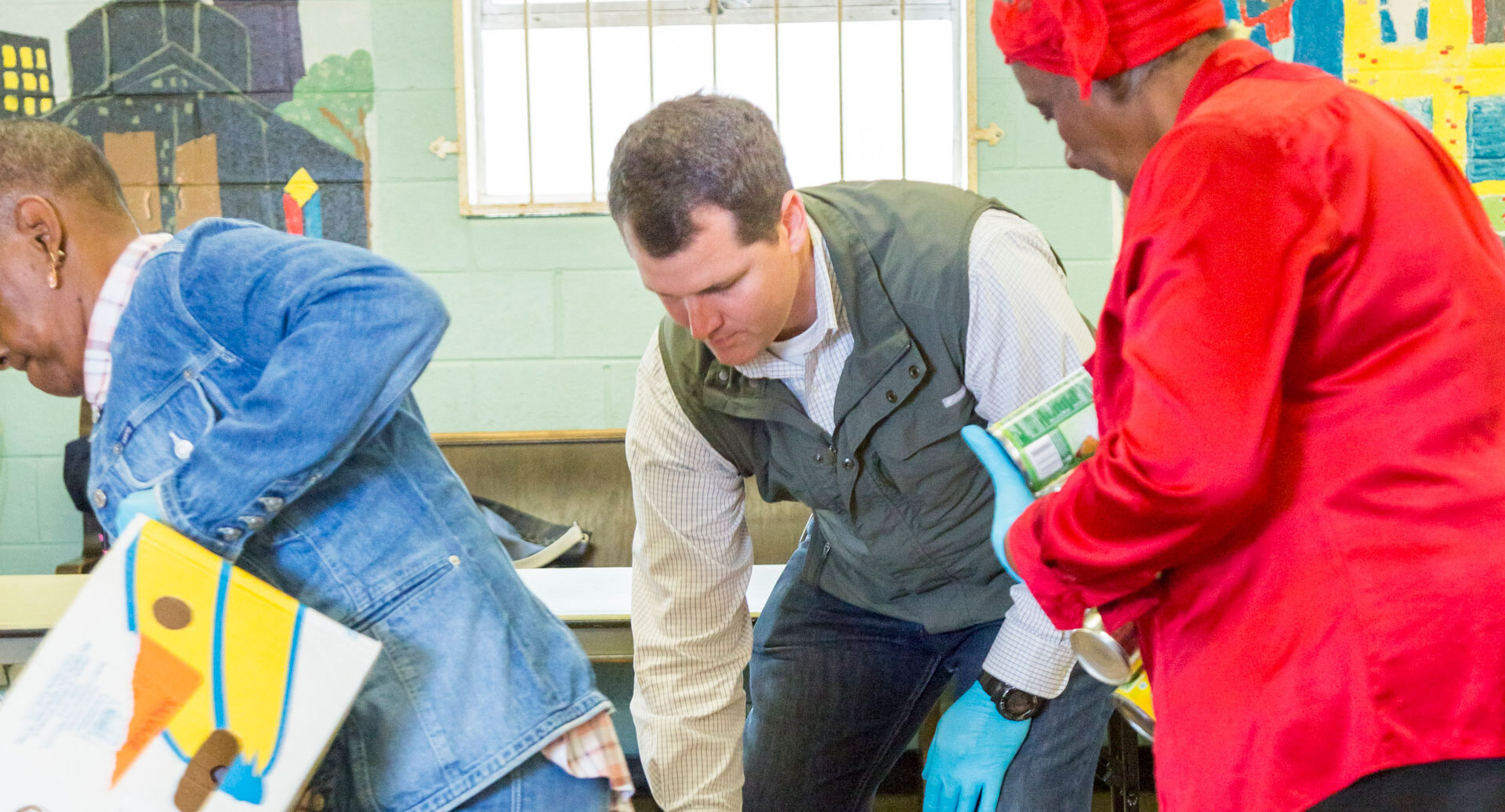
How Is A Food Co-op Different From A Mobile Food Pantry?
Urban Recipe Food Co-ops are more than just food pantries; they are uplifting communities, designed to fight food insecurity through equitable food access, strong relationships and active participation.
Co-op members, who are participants in the program, attend two-hour gatherings every two weeks at the same location and time. During these meetings, members contribute in any way they are able, by breaking down boxes, sorting cans, welcoming members, and more. In return, they receive not only free high-quality food, but the opportunity to build a support system and life-long relationships.

What Impact are Food Co-ops Making on Our Atlanta Community?
Help make a significant difference in the lives of our Food Co-op members.
I loaded up my food, I went home, I packed my deep freezer and was able to give my elderly neighbor some as well.

Co-op Member
Profile of a Food Co-op Member
At Urban Recipe, co-op members come from many backgrounds, abilities and Georgia zip codes. Each of the co-op members brings different parts of themselves to the table, providing a rich and diverse space to combat food insecurity together.
In Need
Co-op members all share the need for food support. Members only need to make a statement of need, and they are welcome to join a co-op for as long as they need support.
Housed
Co-op members receive frozen and uncooked food, and therefore need a place to store it and cook it. All of our co-op members are housed with access to a kitchen.
Dedicated
Co-op members commit to being part of the food co-op. This includes volunteering at co-op meetings, communicating regularly with their leadership, arriving on time and helping their neighbors, and uplifting the dignity of everyone in the co-op.
Leaders
Every co-op is governed by a steering committee that the co-op elects. That means in every co-op, there are members who step up to be leaders for their community.
Mobile
Part of being in co-op means showing up, which requires all members to have access to reliable transportation – be that car, bus, bike or foot – to get to and from co-op meetings.
Types of Food Co-ops
Our co-ops are as unique as the communities they serve, but they share a common purpose: to combat food insecurity through participatory, dignity-affirming, community-driven efforts.
Our co-ops can be found in 3 communities:

School-based Co-ops
These co-ops are open to any faculty, staff or family at a particular school.

Location-based Co-ops
These co-ops are open to residents of a particular location, either zip code or residence.

Open Co-ops
These co-ops are open to anyone who is in need of support.


